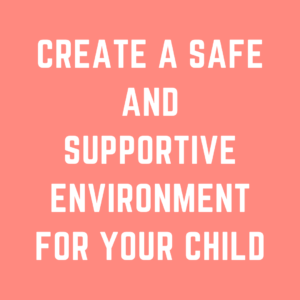As a parent, one of your most important roles is to help your child develop healthy self-esteem.
Self-esteem is the belief in one’s own worth and abilities, and it is essential for children to have a positive self-image in order to develop into confident and capable adults.
Here are some tips on how you can help your child build healthy self-esteem:
- Praise Effort and Progress, Not Just Results
It’s important to praise your child’s effort and progress, not just the end result.
For example, instead of just saying “you did a great job on that test,” try saying “I’m proud of how hard you worked to prepare for that test.”
This type of praise emphasizes the value of effort and hard work, rather than just focusing on the end result.
- Encourage Independence
Encouraging independence is another way to help build healthy self-esteem in your child.
By allowing your child to make decisions and take responsibility for their own actions, you are giving them the opportunity to feel competent and capable.
This can lead to a positive self-image and a sense of self-worth.
- Provide Opportunities for Success
Providing opportunities for success is an important way to help build your child’s self-esteem. This can include things like signing them up for extracurricular activities that they enjoy, setting achievable goals, and celebrating their accomplishments.
When your child experiences success, it can help to boost their confidence and self-esteem.
- Encourage Positive Self-Talk
Positive self-talk is another important aspect of building healthy self-esteem. Encourage your child to think positively about themselves and their abilities.
For example, if your child is feeling down about their performance in school, you can help them or reframe their thinking by saying things like “I know you can do better, let’s work together to figure out how we can improve.”
- Model Positive Self-Esteem
As a parent, it’s important to model positive self-esteem for your child. This means being kind to yourself, acknowledging your own strengths and weaknesses, and demonstrating confidence in your abilities.
When your child sees that you have healthy self-esteem, they are more likely to develop one themselves.
- Be Empathetic and Supportive
Being empathetic and supportive is another important aspect of building healthy self-esteem in your child.
Listen to your child when they express their feelings, validate their emotions, and offer support when they need it. When your child feels heard and understood, it can help to boost their self-esteem.
- Celebrate Uniqueness
Celebrating uniqueness is another important way to help build healthy self-esteem in your child. Encourage your child to embrace their individuality, and celebrate their strengths and differences.
This can help your child to feel valued and accepted, which can lead to a positive self-image and a sense of self-worth.
Conclusion
Building healthy self-esteem in your child is an important aspect of parenting.
By praising effort and progress, encouraging independence, providing opportunities for success, encouraging positive self-talk, modeling positive self-esteem, being empathetic and supportive, and celebrating uniqueness, you can help your child develop a positive self-image and a sense of self-worth that will serve them well throughout their lives.
Remember, building healthy self-esteem is an ongoing process that takes time and effort, but the rewards are well worth it.






